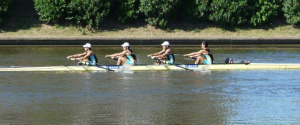When watching too closely is a bad thing Intermittent visual feedback can improve learning of rhythmic movements

When performing a discrete movement such as pitching a baseball, it is known that the brain can promote learning by modifying the motor commands of successive movements based on the difference (error) between the intended and actual results.

On the other hand, the brain mechanisms in rhythmic, repetitive movements, such as dribbling a basketball, are not well understood. During rhythmic movement the brain receives error information on a continuous basis. Is the brain’s error-correction mechanism able to work as well as it does for discrete movements?
Professor Daichi Nozaki and his team at the University of Tokyo’s Graduate School of Education have demonstrated that in rhythmic movement excess visual information interferes with learning. Counterintuitively, it is better to limit the amount of information when learning rhythmic movements, for example by occasionally closing your eyes.
In an experiment in which subjects were required to perform rhythmic movement of a handle, error information received by the brain in the first cycle of a movement affected not just the following but also of later cycles, interfering with learning. On the other hand, performance improved if visual error feedback was provided only every four to five cycles. This result suggests that the brain is not able to adequately process this continuous feedback.
Rhythmic motion, such as walking or playing musical instruments, is a direct and important part of our daily physical and cultural life. The results of this research should have broad implications not just for learning sports, but also technical and practical applications in fields such as in rehabilitation.
(Public Relations Division: Euan McKay, Azusa Minamizaki)
Department release/press release (Japanese)
Paper
Tsuyoshi Ikegami, Masaya Hirashima, Rieko Osu, and Daichi Nozaki,
“Intermittent Visual Feedback Can Boost Motor Learning of Rhythmic Movements: Evidence for Error Feedback Beyond Cycles”,
The Journal of Neuroscience, 11 January 2012, 32(2):653-657. doi:10.1523/JNEUROSCI.4230-11.2012
Article link






